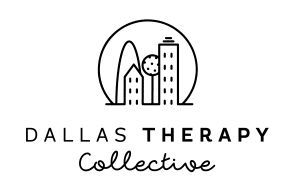Deep breath. There’s a lot here.
Trauma is a lot of things. There’s emotional trauma,
physical trauma, sexual trauma, spiritual trauma, psychological trauma. There’s
traumatic grief. There’s complex trauma. And more. SO. MUCH. TRAUMA.
But what exactly is it?
Well, it’s unwanted, uninvited. It doesn’t ask for consent.
It plows through our lives. It puts us in a position of having to deal with it
even though we didn’t sign up for it. It rears its ugly head, wreaks minor to
major havoc, and exits (sometimes), leaving you left to put yourself back
together. Sometimes a few parts are chipped off and easily glued back together.
Other times you become a jigsaw puzzle of parts strewn over miles that takes
years to reconfigure.
Trauma often leaves us feeling helpless. It often impacts
our sense of identity. We wonder what it means about us that it happened. We
wonder how things would have been if it hadn’t. It can make us feel crazy.
Sometimes we get tripped up because we compare traumas. It’s
tempting, I know. Is mine as bad as
others? Is mine worse? Some people vacillate on minimizing their own trauma
to then minimizing others’ traumas in order to validate their own. We live in a
current political climate that is both validating of and at times glamorizing
of trauma (yes, this is a controversial statement – to be addressed later!)
It’s complicated and nuanced and leaves many people wondering what to make of
their own experiences.
Here’s what’s important: Your reaction to the event or
events. Your feelings are valid. Does it matter if what happened to you was
“worse” or “not as bad” as what others have experienced? If you’re noticing
that it does matter to you, talk with your therapist about what this means for
you. What you think matters and can be a part of your recovery journey.
Our encouragement to you: Notice yourself. Notice how you
feel. Notice what happens in your body when something reminds you of what
happened. Notice your thoughts.
Gather data on yourself. Be a scientist with yourself as
your subject. Pretend you are an outside observer taking notes on your own
experiences. “Hmm, she’s becoming tearful.” “Well, he started tapping his foot
rapidly when talking with so-and-so, he must be feeling anxious.” Take notes on
yourself.
Does your heart start beating rapidly? Do you go numb? Do
you get a sinking feeling in your stomach? Do you notice anger rising up? Is it
hard to speak? Does grief wash over you? Let yourself notice these things.
The signals our bodies and emotions give us mean something.
They’re important. They’re often telling us something we may not consciously
know. Listen to them. Maybe they haven’t been listened to before? Many people
who have been through trauma have already been invalidated, ignored, minimized.
Don’t do this to yourself. Honor yourself by noticing what your body is telling
you and taking it seriously. Sometimes we treat ourselves like the offending
person or people treated us – we ignore our own feelings, we minimize our own
stories. If you’re doing this to yourself, take note of this and shift your
focus to lending a self-compassionate ear toward your own pain and suffering.
Learn how to be the person to yourself that you needed when you were going
through your trauma. Care for yourself.
The good news: you can heal from trauma! Regardless of the nature
of your trauma or traumas, healing is possible. It may take a minute. It may
feel scary, vulnerable, and overwhelming. If you seek healing through therapy,
it can take a bit to learn to trust your counselor. Listen to your gut. Do you
think they get you? Do you feel like they care? Do they seem to want to
understand you? When you’re in a safe therapeutic relationship or setting (this
doesn’t have to be therapy – it could be a number of settings!), let yourself
open up. Say the things. Feel the feels. Connect with yourself and with others.
Healing will come. You will be amazed. You will take back your power as you
take back your life!





